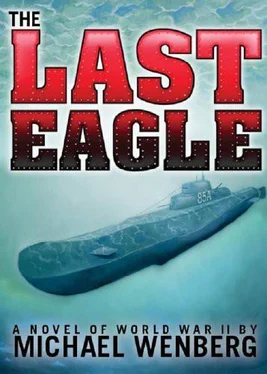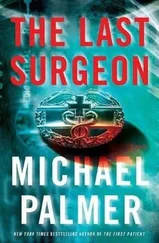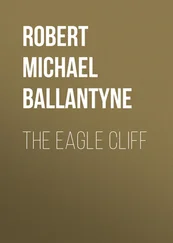Sieinski let Kalm finish a long, detailed exposition of his exploits during the Great War and decided it was past time to hurry things along. “Very interesting, I’m sure,” he said abruptly as Kalm paused to take a breath. “Anything else we should discuss? After our repairs, we will depart immediately.”
The naval attaché from the Polish embassy looked up from his hands. He had just noticed his dirty fingernails. His name was Adam Mokriski. He had plenty of work at the embassy. Gardening was the least of his concerns, but that is what he did when he was worried. And war news from home had him deeply worried. He had phoned in sick, deciding instead to stay home and work in his rose bed. “Yes, sir. They will depart,” he echoed, feeling the need to contribute something.
“Of course, they will,” the admiral waved. “And I will do everything to help you.” He glanced sharply at Sieinski. “Yes, there is one other item. You need to be aware of a few regulations. According to…,” he glanced at the notes on his desktop, “Article XII of the Hague Convention, to which Poland and Estonia are signatories, representatives of the neutral country—that’s me—are required to inform a belligerent warship—that’s you¬—that it must leave within 24 hours. In fact, not just leave port, but leave the territorial waters. Clear enough, I think.”
Sieinski glanced at his watch. “You will have no problems from us. Repairs are already under way…,” he lied.
“Very good,” beamed the admiral, finally deigning to look at the men, relieved that they were nearly out of his office, completely unaware of the fact, like most self-absorbed prigs, that he was the one prolonging it. “If there are no more questions, then…..” He stood, putting an exclamation mark to the end of the meeting.
Stefan yawned, looked up at everyone already on their feet, and then pushed himself out of the chair. He patted the arm affectionately. Yes, a fine chair, he thought. He remembered, his hat, reached under the chair to grab, and then plopped it on his head. “One question, sir,” he said. Sieinski had already fled. The attaché paused in the doorway, wavering between following after the captain, and wanting to hear what Stefan asked the admiral. “Perhaps you could tell me where I might find the offices of the Dutch shipbuilder De Schelde? They have a couple of items we need.”
Kalm gave Stefan a blank look. “I’m not aware that any Dutch shipbuilder has offices in Tallinn. You must be mistaken.”
“Are you sure? We have three Dutch engineers on board and they….”
“Ignorance is not one of my vices,” interrupted the admiral haughtily.
“But these Dutch engineers, they….” Stefan caught himself. There it was again. A vague sense of unease, as if his subconscious had something important all worked out, but could only hint at the answer. He caught sight of the attaché shaking his head back and forth, and then noticed that Kalm’s face had deepened another shade of red.
“Thank you, sir,” Stefan said, giving the admiral a crisp salute, pivoting around on his heels, and then he marched out of his room.
“I have to get back to my ship,” Stefan said as he hurried down the hallway.
“I was hoping to talk with you and your captain,” Mokriski said. He glanced over his shoulder. “News from home is very bad.”
Stefan gave the man a brief glance. “Tell me something I don’t know,” he said shortly.
“Why are you here?” Mokriski said with a little heat. “We weren’t notified that you were coming. It was a complete surprise. Why aren’t you?…”
“Defending the homeland?” Stefan finished for him. He stopped in the middle of the hallway, ignoring the glances from the Estonian naval staff, office workers and secretaries, hurrying by on either side of them, the bright linoleum floor gleamed like a road to Oz in either direction. Morkriski skidded to a stop a moment later, doubled back to Stefan, not afraid to stand close though he was half Stefan’s bulk.
“Why, yes, that’s exactly what I was going to say,” Morkriski said, glaring up at the Eagle’s executive officer.
Stefan gave a thin smile of apology, resisted an impulse to pat the smaller man on the top of his head. “That is an excellent question. In fact, one I asked myself on numerous occasions. But for the answer, you need to ask our dear, departed captain. I’m surprised, though, you didn’t know we were on our way. He said he radioed headquarters about our coming…”
Morkriski shrugged. “They never contacted us.”
Another faint eddy of unease touched his spine. Stefan shook his head after a moment. At the moment, it didn’t matter if the captain had lied about it, or if it was simply a mistake at headquarters in Poland. Sieinski was done on the Eagle . That was a certainty. Stefan turned and began hurrying down the hallway again. The desire to get back to the ship was growing stronger with each passing moment. On impulse, Stefan shouted over his shoulder. “I may need your help later on.”
Morkriski ran to catch up. “With what?”
Stefan gave a humorless laugh. “Probably nothing… the war has me spooked.” He paused in the middle of the marble-clad entryway of the Estonian naval headquarters building, slapped the attaché on either shoulder. “But maybe it is something. My grandmother was a gypsy, you know.” And then pushed through the doors and stepped out onto the sidewalk.
“What a loonybird.” Morkriski breathed the words, watching Stefan leave. Must be those damn boats. Enough to make anyone batty. Cooped up like that. He thought about returning to the embassy. But that was another nuthouse, the inhabitants almost as crazed as submariners. Morkriski glanced at his nails and decided. At the moment, he needed his roses almost as much as they needed him. As he followed a red-haired Estonian woman out the door, admiring the movement of her skirt across her ample behind, he began to laugh. “A gypsy grandmother? That Stefan Petrofski was a kook and a jokester. No one with gypsy parents or grandparents could ever rise to officer in the Polish Navy.” But then, as Morkriski raised his arm to hail a cab, another thought occurred to him. “What if he hadn’t been joking?”
Back in his office, Admiral Kalm was standing next to his window. Despite his age, his eyes were still sharp as a teenager’s. He spied Stefan’s bulky figure appear on the sidewalk, watched him glance automatically to the sky, a sailors habit, and then begin jogging back toward the harbor, as resolute as a locomotive.
“That one will be a problem,” he said to the man standing at his side.
Ritter, hands clasped behind his back, watched Stefan disappear. He had already showered and shaved, and stood dressed in his Kriegsmarine uniform, courtesy of the naval staff at the German embassy.
It was almost done.
“Perhaps,” he said, acknowledging this superior officer. “But I think it is too late for him to matter. It is all set, is it not?”
“As you requested, Captain,” Kalm replied smoothly. This man was only a captain, but he had Dönitz’s ear, it was said. Best to treat him gently. “The invitation is being delivered as we speak. But what if they decline?”
“Refuse free food and drink?” Ritter began to laugh. “You don’t know Polish sailors. Trust me, if we did not send the trucks, they would arrive an hour early on foot. In any case, we have them hooked. The Eagle is all but mine.”
Kalm couldn’t contain a chuckle. The young, arrogant German bastard. “No, it is almost mine,” Kalm corrected. “Or, to be more precise, under the protection of the Estonian government. There are a few rules we must follow. Arrangements made. Confirmations sent. You understand, of course.”
Читать дальше












